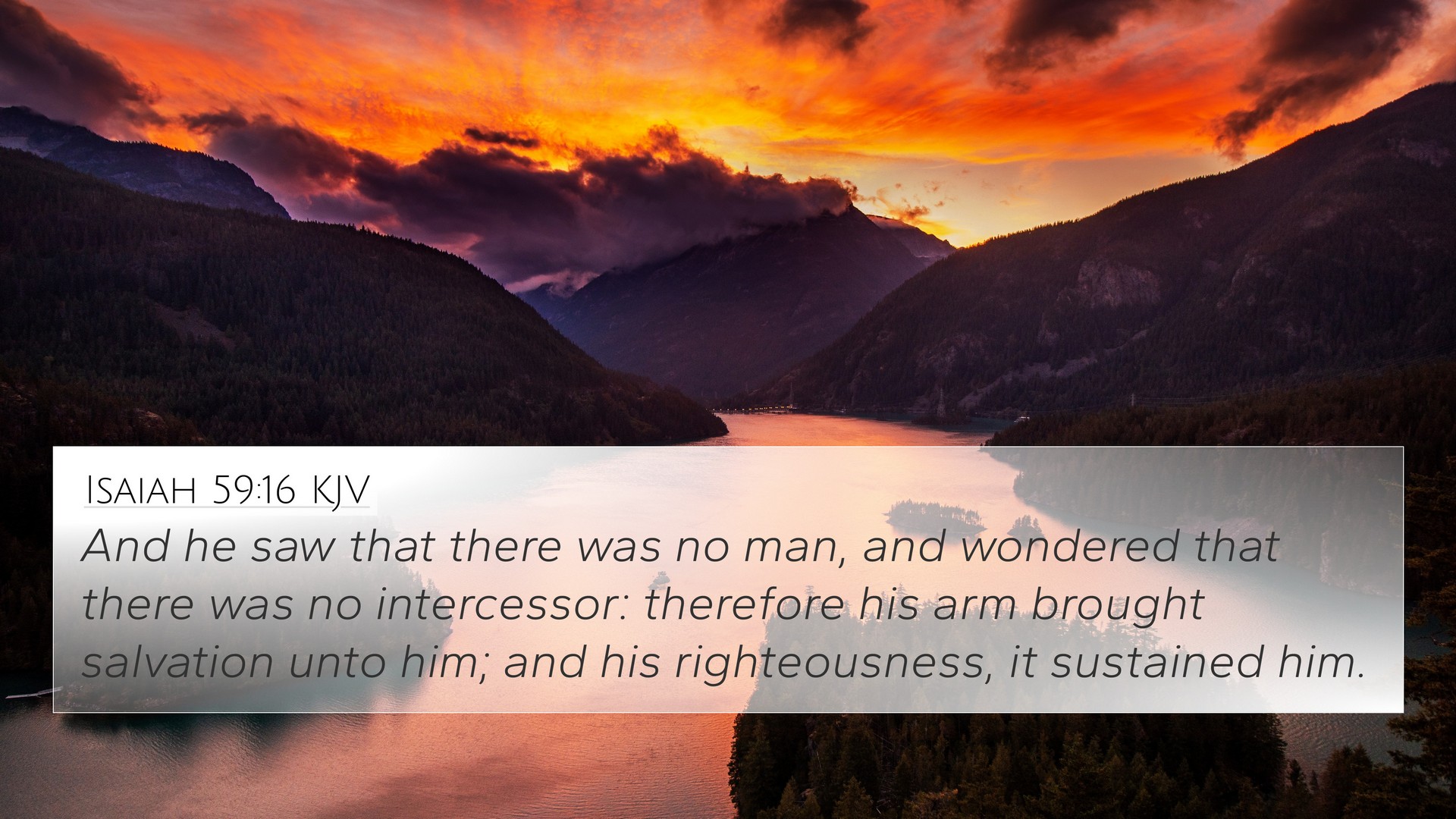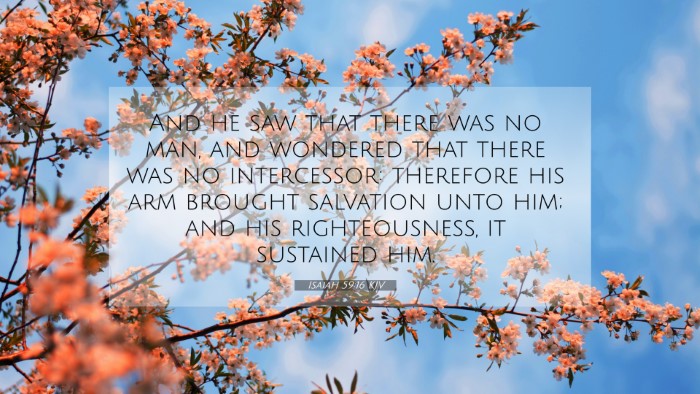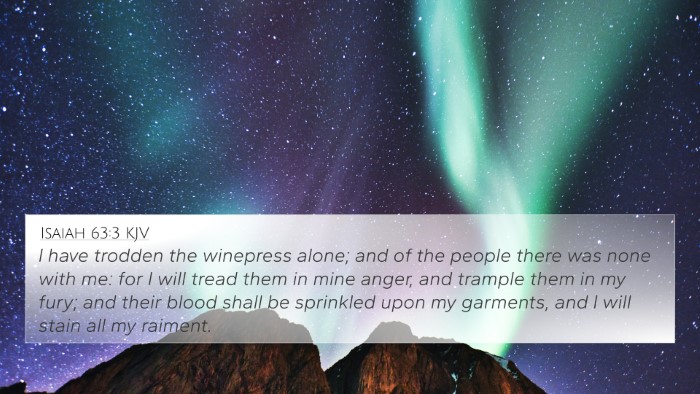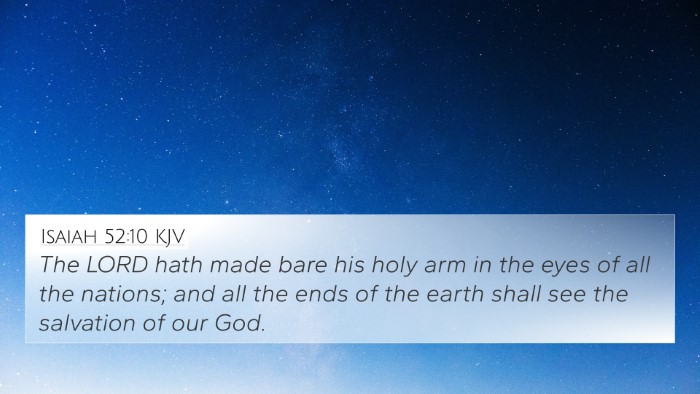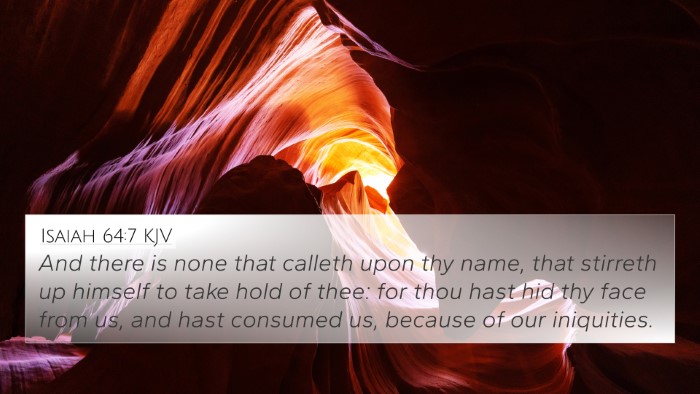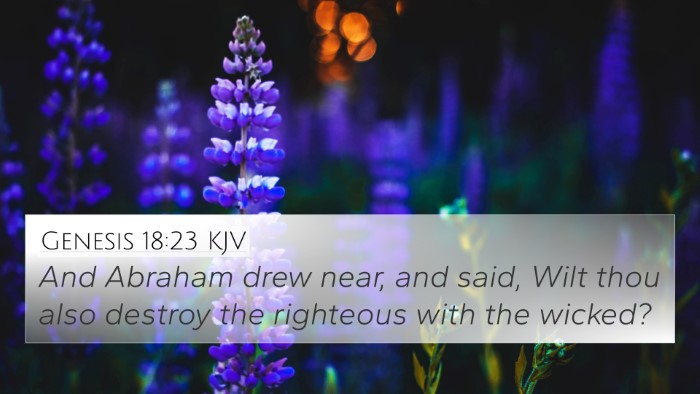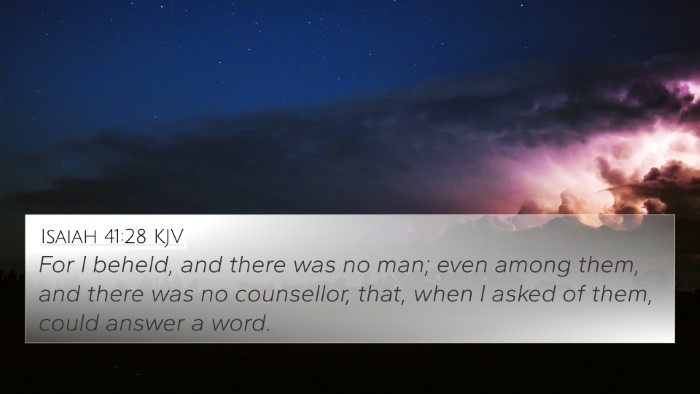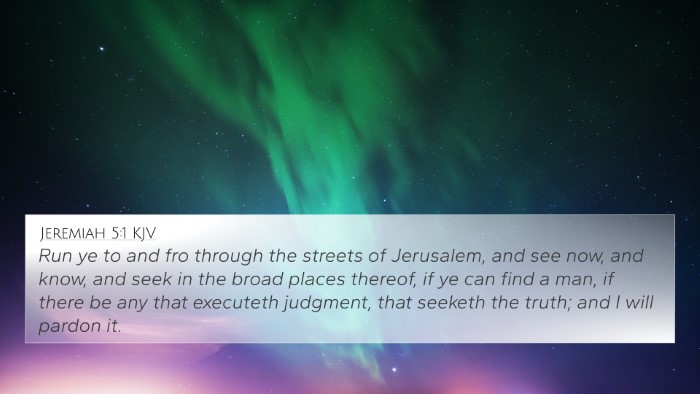Understanding Isaiah 59:16: Summary and Insights
Isaiah 59:16 states: "And he saw that there was no man, and wondered that there was no intercessor: therefore his arm brought salvation unto him; and his righteousness, it sustained him." This verse emphasizes the lack of mediators and the divine intervention of God in the salvation of humanity. Below, we explore a deeper understanding of this text through various commentaries.
Interpretation of Isaiah 59:16
The verse expresses God's observation of a desperate state within humanity. It implies that in times of need, there was no one to intercede—no one to advocate for justice or mercy. The phrase, "his arm brought salvation," signifies God's own power and initiative in rescuing His people as no mere human effort could suffice. This idea resonates throughout various Biblical texts, highlighting God’s solitary capability to save.
Commentary Insights
-
Matthew Henry: Henry notes the divine concern when God saw that no one was available to act on behalf of humanity. He emphasizes God's sovereign act of salvation, which was initiated by His arm—symbolizing strength and direct intervention—rather than waiting for human mediation.
-
Albert Barnes: Barnes elaborates on the absence of intercessors, seeing it as reflective of God’s justice mingled with mercy. He suggests that God's intervention was borne out of necessity to fulfill His righteousness when mankind failed to uphold it.
-
Adam Clarke: Clarke interprets the "arm" of God as a metaphor for His power and might. He contends that this verse evidences God's active role in redemption when humanity lacked the ability or willingness to help itself.
Thematic Connections
Isaiah 59:16 connects to several broader themes in the Bible, specifically regarding salvation, intercessory roles, and God’s righteousness. Notably, this verse is pivotal in the discussion on the necessity of divine intervention versus human incapacity.
Bible Cross-References
Here are 10 Biblical references that relate closely to Isaiah 59:16, presenting connections between Scriptures that enhance our understanding of this pivotal verse:
- Romans 8:34: "Who is he that condemneth? It is Christ that died, yea rather, that is risen again, who is even at the right hand of God, who also maketh intercession for us." This shows Christ as the ultimate intercessor.
- Isaiah 53:4-5: Speaks of Christ bearing our griefs and carrying our sorrows, underscoring the concept of divine intervention in suffering.
- Job 9:33: Job expresses a desire for an arbiter—a mediator—between himself and God, highlighting the need for intercession.
- 1 Timothy 2:5: "For there is one God, and one mediator between God and men, the man Christ Jesus." This reinforces the theme of mediatorship in salvation.
- John 14:6: Jesus declares, "I am the way, the truth, and the life: no man cometh unto the Father, but by me," emphasizing his role as the sole intercessor.
- Hebrews 7:25: Describes Jesus as able to save completely those who come to God through him, illustrating the idea of active intercession.
- Psalms 106:23: References God’s intervention as a response to the failings of the people, akin to the observations made in Isaiah 59:16.
- Ezekiel 22:30: God searches for someone to stand in the gap but finds none, similar to the themes of intercession present in Isaiah’s message.
- Matthew 23:37: Jesus lamenting over Jerusalem speaks to a desire to gather them under His wings, embodying both divinity and intercession.
- Acts 4:12: "Neither is there salvation in any other: for there is none other name under heaven given among men, whereby we must be saved," reiterating the uniqueness of God's salvation.
Conclusion
Isaiah 59:16 serves as a profound reminder of God's vigil over humanity's plight. The lack of earthly intercessors prompts divine action, ensuring salvation through His might. The connections between this verse and others help illuminate the overarching narrative of redemption found throughout Scripture. By exploring these Biblical cross-references, we can deepen our understanding of intercessory roles within God’s plan, affirming the importance of His righteousness and justice in the face of human shortfall.
Tools for Further Study
For those interested in diving deeper into cross-referencing Biblical texts, various tools and methods can facilitate an enriched study experience:
- Bible Concordance: Helps locate verses based on specific words or themes.
- Bible Cross-Reference Guide: Lists verses that relate to each other, illuminating thematic connections.
- Bible Cross-Reference System: A methodical approach to understanding Scripture through interconnected passages.
- Comprehensive Bible Cross-Reference Materials: Resources that provide depth in scriptural links and themes.
